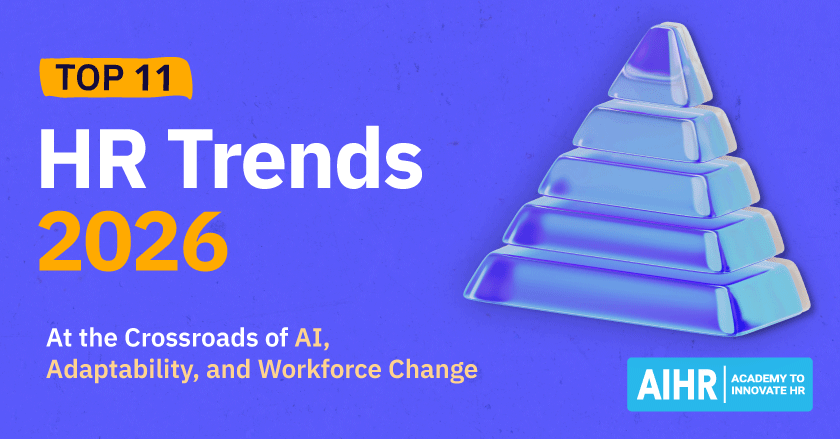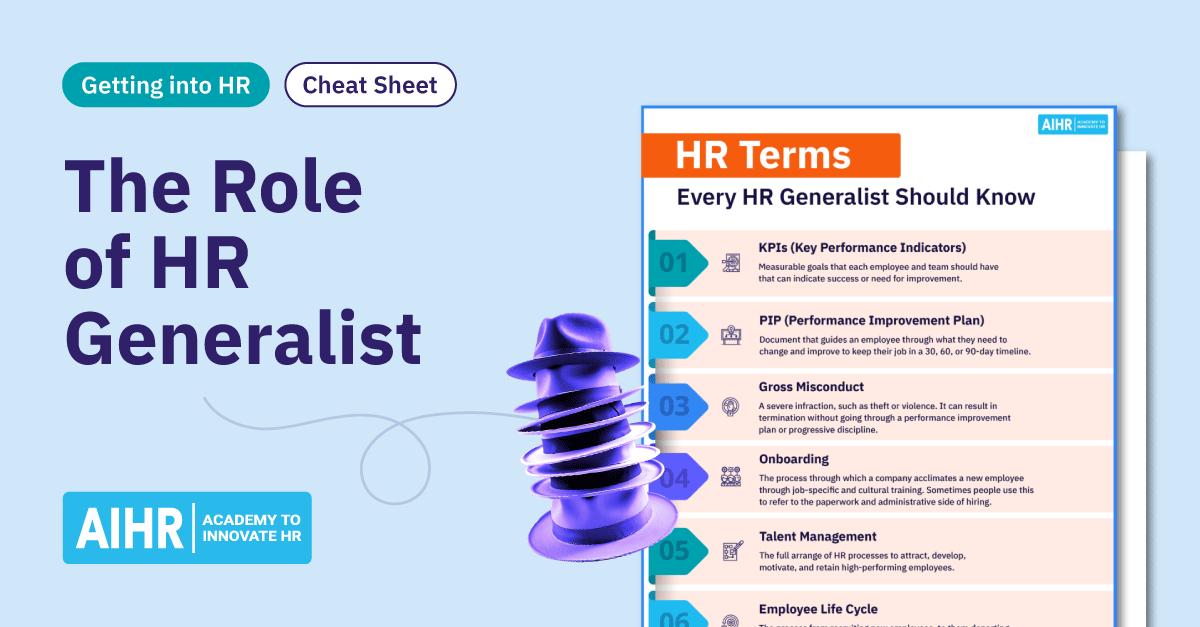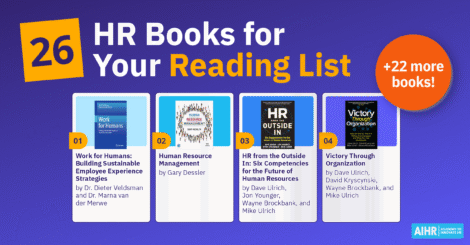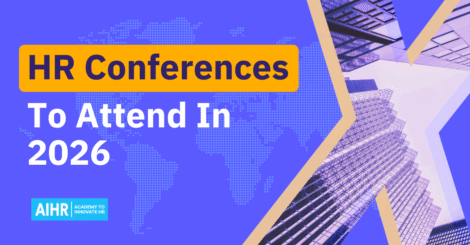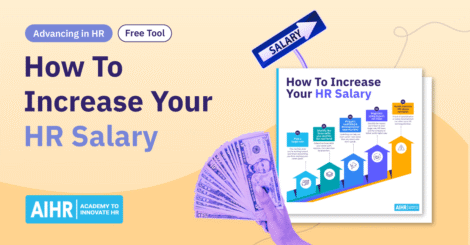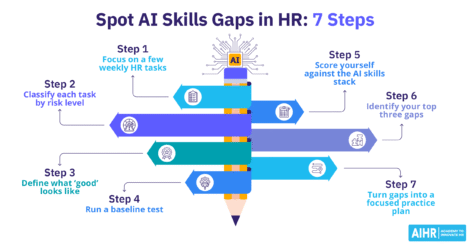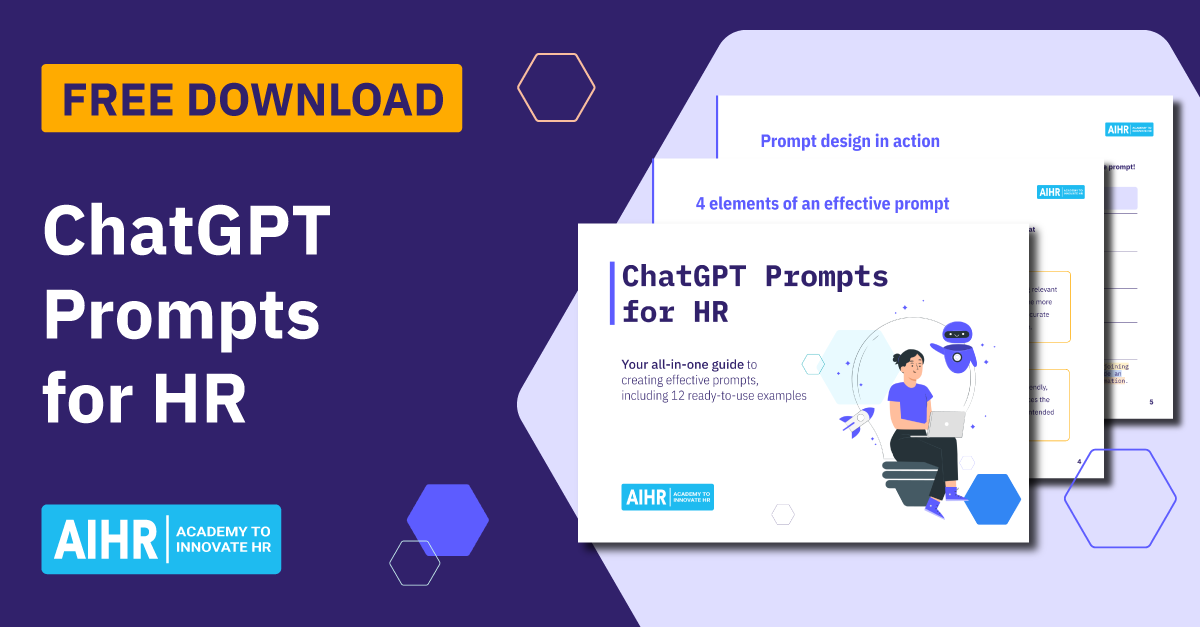As the go-to contact for all aspects of HR, the breadth of the HR Generalist role makes it exciting. No two days are the same when you’re responsible for keeping operations smooth across the entire employee life cycle. If you’re considering this career path, the outlook is good. The U.S. Bureau of Labor Statistics projects 6% employment growth for this role in 10 years — nearly double the 3.1% average predicted for all occupations over the same period.
This role also serves as a direct launchpad for high-demand advisory and leadership roles, such as that of an HR Manager, which typically needs five or more years of related experience that you can gain in the HR Generalist position. This article explores what an HR Generalist does, the skills and competencies required for the role, how much you can expect to earn, and how to become an HR Generalist.
Contents
What is an HR Generalist?
HR Generalist job description
Roles and responsibilities of an HR Generalist
Qualifications for an HR Generalist role
Skills and competencies for an HR Generalist role
Average HR Generalist salary
HR Generalist career path
AIHR certificate programs to consider
Key takeaways
- An HR Generalist manages the entire employee life cycle, from recruitment and onboarding to benefits administration and compliance.
- Success requires technical fluency (HRIS/ATS literacy, data-driven reporting), as well as soft skills like manager coaching, communication, and discretion.
- The position offers a career progression pathway to advisory roles such as HR Consultant or leadership positions like HR Manager.
- An HR Generalist certification helps build broad, practical skills that provide a foundation to explore management or specialization roles as your career evolves.
What is an HR Generalist?
An HR Generalist is the main contact for all HR matters. They manage the full employee life cycle, including recruiting and employee onboarding, performance management, employee relations (ER), compensation and benefits (C&B), and HR compliance and administration.
The role is broad and adaptable, and responsibilities vary by company size and industry. In smaller or start-up organizations, HR Generalists are often the first HR hire and own the entire HR function. However, as companies grow, their work often splits into specialist roles such as HR Business Partner (HRBP), Compensation Specialist, or Learning and Development Manager.
HR Generalist job description
The role of the HR Generalist involves managing the entire Human Resources function, translate business goals into operational reality, and serve as the organization’s culture and compliance backbone.
Roles and responsibilities of an HR Generalist
Here are the roles and responsibilities of an HR Generalist:
Recruiting and onboarding
In small companies, managers may handle recruiting and onboarding but often, an HR Generalist oversees these processes. Their duties typically include:
- Coordinating job postings, sourcing candidate and screening résumés
- Administrative work (e.g., scheduling interviews with the hiring team)
- Conducting interviews, as well as reference and background checks
- Putting together an employment offer and guiding the salary negotiations
- Managing the employee onboarding process
- Ensuring compliance with all relevant laws on reporting and records retention
- Serving as an advisor to hiring managers
- Working with immigration on visas for foreign hires
- Working with managers to create performance management plans
- Developing and implementing employee training and development programs.
Employee administration and support
HR Generalists must maintain accurate employee records, including staff files, HRIS data, and other HR documentation. They’re also often the first point of contact for employees who have questions or concerns regarding contracts, paperwork, and more.
Leaves of absence are also part of the HR Generalist’s responsibilities. This can involve administering leave programs, managing paperwork, and ensuring compliance with all relevant government regulations. The HR Generalist must have a good idea of different types of leave, so they can properly classify and approve leave applications.
Benefits administration
HR generalists may handle queries and administration tasks related to employee benefits and perks, including healthcare, pensions, retirement plans, and vacation time. They may also be responsible for analyzing competitors’ compensation packages and benchmarking against them to help attract top talent through a competitive rewards strategy.
Employee relations
Employee relations encompass all the day-to-day functions of overseeing the people side of businesses, including:
- Management training: The HR Generalist should be the expert in manager-employee relations, as well as in training managers on giving feedback and building strong relationships with their team.
- Discrimination/harassment investigations: An HR Generalists is typically expected to conduct an HR investigation and decide how to proceed regarding incidents involving harassment and discrimination claims.
- Misconduct investigations: Employee misconduct, such as violent behaviour at work or ignoring safety protocols, also require HR Generalists to investigate incidents and make decisions on appropriate disciplinary action.
- Firing employees: While the direct supervisor must inform the employee of their termination, the HR Generalist should be present as a witness. Managers should never fire an employee without first consulting with HR.
- Conducting exit interviews: Shortly before employees leave the organization, HR Generalists often discuss with them their reasons for doing so. They then use this information to help improve different processes or practices at the company.
- Collective bargaining and unionized workforce negotiations: Depending on which country the HR Generalist is based in, they may also be required play a role in labor relations by managing collective bargaining and liaising between the employer and trade unions.
Other responsibilities
Depending on the organization and its HR department structure, an HR Generalist may also have other responsibilities. Some additional strategic responsibilities include:
- Succession planning: The HR Generalist may need to determine if the company has a competent talent pipeline to replace different people when they leave, and if not, how to develop such a pipeline.
- Defining organizational structure: In smaller businesses, an HR Generalist may be involved in helping to define the organizational structure that suits the company’s needs best.
- Company-wide communication: The HR Generalist must communicate all changes, updates, and workforce- and company-related announcements to employees clearly and promptly.
- Values and culture expertise. An HR Generalist must help align organizational values with employee behavior, ensuring the organization fosters a positive, productive work environment.
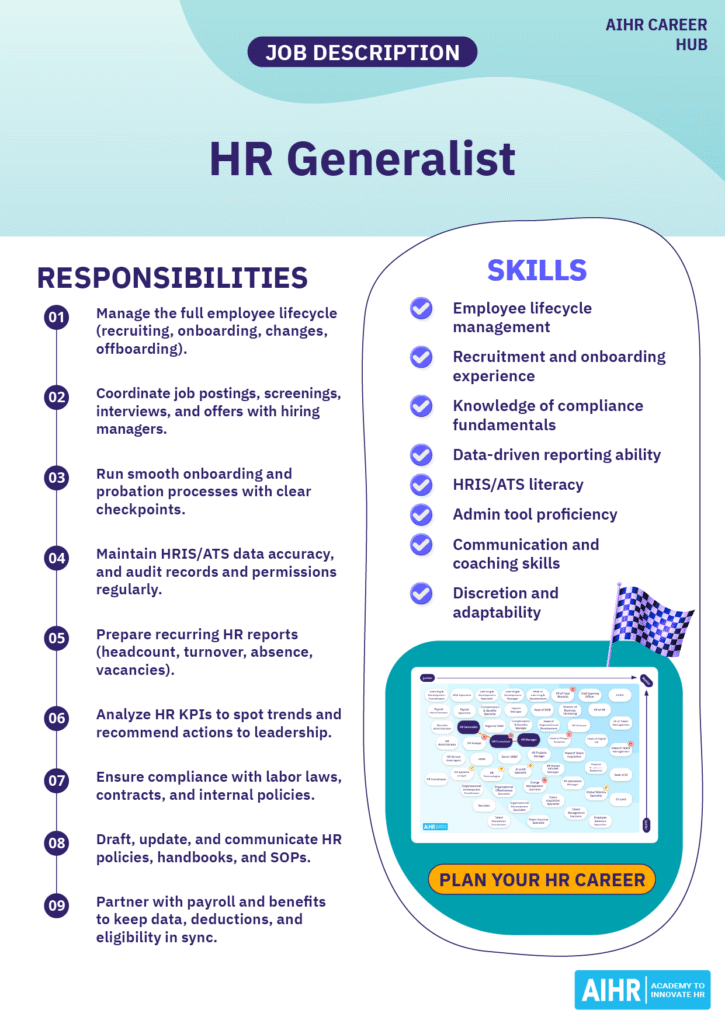
Qualifications for an HR Generalist role
To succeed as an HR Generalist, candidates need the right mix of education, certifications, and experience.
Educational requirements
Here are the minimum educational requirements for becoming an HR Generalist in the U.S.:
- Bachelor’s degree in Human Resources, Business Administration or Organizational Psychology, or a related field
- Equivalent professional experience can sometimes substitute for a formal degree, especially if you’re transitioning from an HR Assistant or HR Coordinator role within the same company.
Recommended certifications
Although optional, relevant certifications within the HR Generalist field can help advance your career. Here are some popular certifications:
- HR Generalist Certificate Program: This program teaches you to develop your own strategic HR function and build end-to-end HR processes, from hiring to employee engagement. You’ll also learn to use the HR Canvas Model and create impactful HR strategies.
- Digital HR 2.0 Certificate Program: This certificate program will give you the skills you need to use digital HR to boost HR innovation and efficiency, and optimize and automate HR processes. You’ll also learn the role of digital HR in improving HR service delivery.
- Human Resource Generalist Certificate: This online certificate program by the University of Minnesota is designed to help you build expertise in the technical, operational and strategic aspects of Human Resources management (HRM).
Work experience
While organizations and industries vary, here’s the experience you will generally need to be considered for an HR Generalist job:
- Typically three to five years of experience in HR or people operations (including recruitment and onboarding, ER, performance management, C&B, and admin and compliance)
- More extensive experience is generally preferred if you’re joining organizations in complex, highly regulated, or multi-jurisdictional environments.
Build your HR Generalist skills to advance your HR career
Learn to succeed as an HR Generalist and boost your HR career by engaging employees throughout their tenure and supporting efficient business operations.
🎓 AIHR’s HR Generalist Certificate Program will help you:
✅ Engage with people across all the stages of the employee life cycle
✅ Develop HR processes that keep business operations running smoothly
✅ Build an HR operating model that can diversify and evolve with the business
Skills and competencies for an HR Generalist role
Let’s explore the skills and competencies required of the role of an HR Generalist.
Role-specific skills
- Sourcing, selecting and interviewing candidates in a fair, inclusive manner to prevent discrimination and bias
- Employee life cycle management, from initial contract all the way to exit
- Ability to provide essential recruitment support, and coordinate onboarding to help new hires get up to speed quickly and integrate smoothly
- Compliance fundamentals (stay up-to-date on policy changes and compliance administration to mitigate risk)
- Data-driven reporting skills to accurately track and report essential HR metrics, and provide meaningful insights to inform leadership decisions.
Technical skills
- HRIS/ATS literacy for accurate data entry, reporting, and document management
- Working knowledge of admin tools like payroll inputs, employee benefits administration platforms, and reporting tools (e.g., spreadsheets or business intelligence tools)
- Project management skills to streamline work, prioritize tasks and achieve goals.
Soft skills
- Communication skills to connect with people at all levels of the business, represent both employer and employee whenever needed, and maintain good employee relations.
- Exceptional organization, prioritization, and follow-through capabilities to juggle multiple shifting workflows simultaneously, and deliver on business outcomes.
- Strong problem-solving abilities, discretion for handling confidential information, and adaptability to respond quickly to shifting business needs
- Collaborative capabilities to work well with not just HR but also employees, managers, leaders and stakeholders.
Average HR Generalist salary
Salaries for an HR Generalist role vary depending on experience, the company’s size and location, and the specific job requirements and level of responsibility. For example, an HR Generalist responsible for 25 people will likely earn less than one responsible for 150 people, and who also supervises people in specialist roles.
The AIHR HR Career Map categorizes the HR Generalist role as a mid-career position with an estimated annual salary range of $61,000 to $76,000. These figures are based on real-time labor market data and intelligence provided by Revelio Labs.
HR Generalist career path
The HR Generalist role offers a strong launchpad for many specialized HR careers, as it covers the full scope of people operations and builds a solid HRM foundation.
One route involves progressing from HR Generalist to HR Consultant. In this track, you use your hands-on experience across the employee life cycle to move from execution to advisory work. As an HR Consultant, you identify organizational gaps, design policies to address them, and lead change initiatives across different business units.
Another common route is to go from HR Generalist to HR Manager. To take this step, you must develop leadership and strategic planning skills that equip you to oversee a team of HR Generalists or HR Specialists, manage budgets, and align HR with overall business strategy.
As an HR Manager, you’ll act as the link between senior leadership and employees, shifting from tactical execution to full strategic ownership.
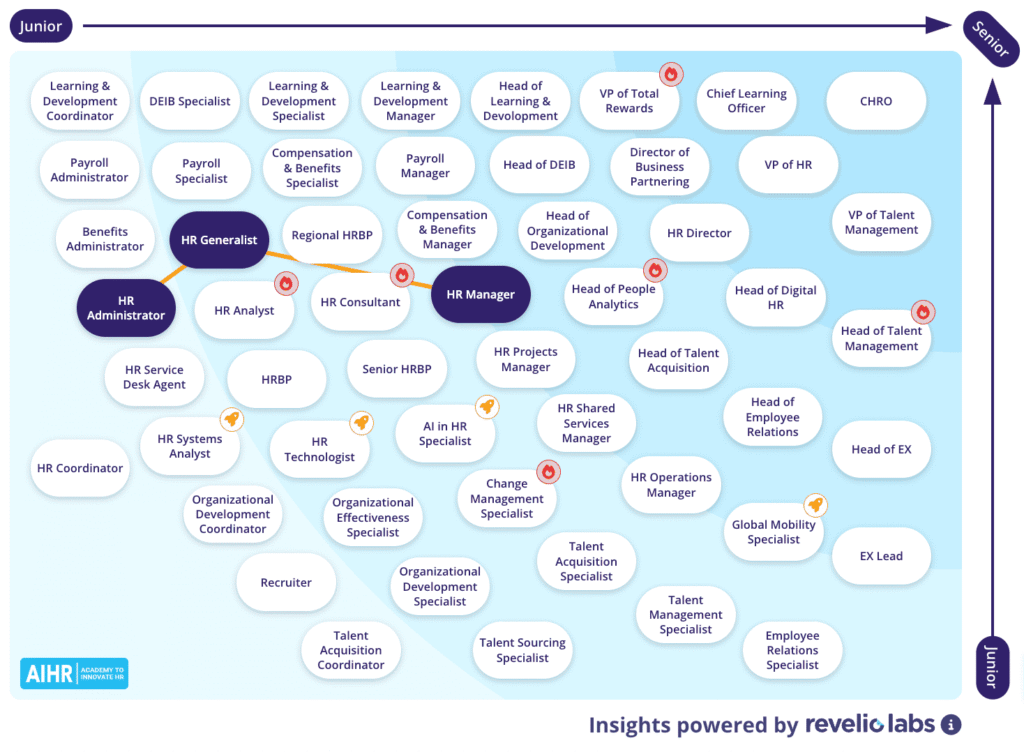
AIHR certificate programs to consider
AIHR offers three self-paced online programs to help HR Generalist strengthen crucial skills for their role:
HR Generalist Certificate Program
The HR Generalist Certificate Program equips you with a comprehensive, practical skill set across all core HR functions, as well as a strategic mindset to drive business value and innovation. Aligned with the T-Shaped HR Competency Framework, it helps you develop both deep expertise in HR and broad business, analytics, and digital skills, preparing you for career advancement.
Digital HR 2.0 Certificate Program
The Digital HR 2.0 Certificate Program enhances business acumen, data literacy and digital agility, enabling you to optimize HR service delivery, improve EX, and drive organizational effectiveness. Earning this certification will help position you as a leader in HR digital transformation within your organization, ensuring you remain relevant and impactful.
Next steps
To move forward, start by clarifying where you want your HR Generalist career to go next. Use AIHR’s HR Career Map to explore your options and decide whether you want to deepen your expertise as an HR Generalist or move toward a specialist, consulting or managerial track. This gives you a clear view of the skills and experience you need to build now to reach your next role.
Then, invest in focused learning that matches your direction. The HR Generalist Certificate Program helps you build end-to-end, practical HR capabilities, while the Digital HR 2.0 Certificate Program strengthens your ability to remain relevant in HR amid digital transformation. Choose the path that best fits your ambitions and start closing the gaps in your skill set.


